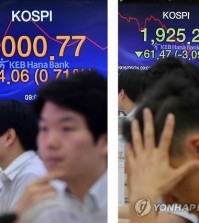- California Assembly OKs highest minimum wage in nation
- S. Korea unveils first graphic cigarette warnings
- US joins with South Korea, Japan in bid to deter North Korea
- LPGA golfer Chun In-gee finally back in action
- S. Korea won’t be top seed in final World Cup qualification round
- US men’s soccer misses 2nd straight Olympics
- US back on track in qualifying with 4-0 win over Guatemala
- High-intensity workout injuries spawn cottage industry
- CDC expands range of Zika mosquitoes into parts of Northeast
- Who knew? ‘The Walking Dead’ is helping families connect
Seoul aims to host 30 int’l agencies
By Kim Se-jeong
Seoul Metropolitan Government announced Wednesday that it will seek to host 30 more international organizations by 2020.
Among the targets are the Sustainable Urban Development Network under the United Nations Human Settlements Program; the International Association of Gerontology and Geriatrics; Bloomberg Associates; and the World Resources Institute.
Currently, it hosts 20 international.
“This will help create more job opportunities. The economy will benefit from a new group of people with purchasing power,” said an official.
An international organization cluster is one method being considered to attract them.
Two locations are currently being looked at: the Seoul Global Center in Jongno-gu and the Seoul Innovation Park in Eunpyeong-gu.
The Seoul Global Center currently host CityNet, a group of cities to promote cooperation and sustainable development; ICLEI, an association of cities and local governments with a commitment to sustainable development; the International Bar Association’s Korea branch; the Seoul International Dispute Resolution Center; and the World E-governments Organization. The local government’s move is not unprecedented.
Johannes Regenbrecht, a German diplomat here, related the experience of Bonn, the former capital of West Germany. He said concerted efforts between the federal and city governments gained Bonn prestige, an economic boost and job creation.
“It was a lot to spend in the beginning, but it was a success story,” Regenbrecht told The Korea Times.
Bonn lost its capital city status in 1991 when the unified German federal government decided to move to Berlin, with the promise to support the hosting of international organizations.
According to bonn-international.org, the city is now host to 18 UN secretariats and organizations, many of which are concerned with the environment, including the secretariat of the United Nations Framework Convention on Climate Change. One of Bonn’s latest bids was for the Green Climate Fund, which Korea’s Songdo won.
Thirteen international organizations now have their offices in Songdo. Asked about possible competition between Seoul and Songdo, both cities dismissed the possibility, saying there was more to collaborate on than to compete against.















